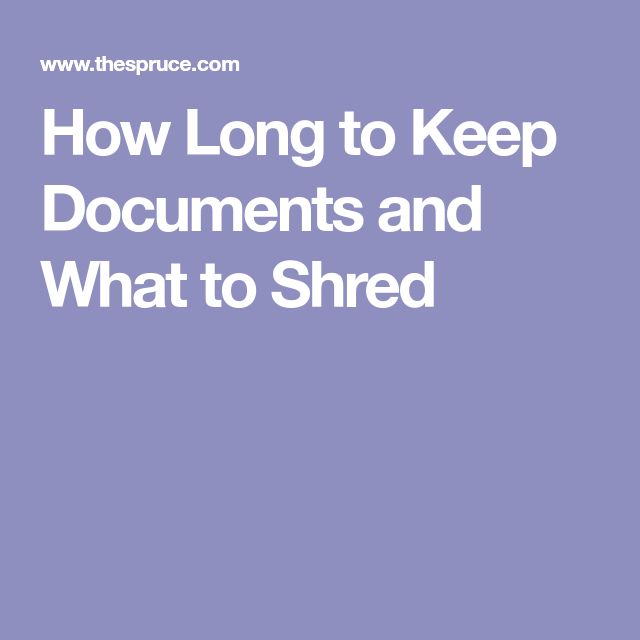Household Paperwork: How Long Should You Keep It?

Managing household paperwork can feel like an endless task, with papers piling up and taking up space. From utility bills to tax documents, knowing how long to keep these important records is crucial for both organizing your home and maintaining financial health. In this detailed guide, we'll explore how long you should retain various types of household documents, why it matters, and best practices for storage and disposal.
Why Keep Paperwork at All?

Before diving into specifics, let’s consider why keeping paperwork is essential:
- Legal Compliance: Certain documents are legally required for audit or tax purposes.
- Financial Planning: Keeping records aids in financial tracking and planning.
- Proof of Ownership or Transaction: Documents serve as evidence in case of disputes or claims.
- Nostalgia or Sentiment: Some documents hold sentimental value or are worth retaining for personal reasons.
Types of Documents and Their Retention Period

Financial Documents

- Tax Returns and Related Documents:
- Federal Taxes: Keep for at least 7 years due to the statute of limitations on IRS audits.
- State/Local Taxes: Retention may vary, but a good practice is to keep them for as long as federal documents.
- Pay Stubs: Retain for 1 year after filing tax returns.
- Bank Statements: Keep for 1 year, or longer if they support tax deductions or legal matters.
- Investment Statements: Hold onto for 7 years or longer if the investments are still active.
- Credit Card Statements: Keep until you’ve confirmed payment has been received; keep the annual summary for 7 years for tax purposes.
📘 Note: Electronic copies are often acceptable for many financial documents, reducing clutter and simplifying storage.
Household Documents

- Home Purchase or Sale: Retain for the life of the home ownership or at least 6 years after sale for tax purposes.
- Home Improvement Records: Keep these permanently for tax deduction purposes when you sell your home.
- Warranties and Instruction Manuals: Hold onto these until the item is no longer in use.
- Utility Bills: Keep for 1 year, or longer if they’re used for tax deductions or business expense tracking.
Insurance

- Home and Auto Insurance Policies: Retain while they’re active or until the claims are settled.
- Life Insurance Policies: Keep permanently.
- Health Insurance: Hold onto Explanation of Benefits (EOBs) for 1 year; policy documents should be kept while active.
Legal Documents

- Wills and Trusts: These should be kept permanently.
- Marriage Certificates: Keep permanently.
- Divorce Papers: Retain permanently, especially for custody or financial settlements.
- Birth Certificates: Keep these documents for life.
- Death Certificates: Keep copies for legal matters, usually for a lifetime.
- Power of Attorney: Keep as long as the power is active.
Medical Records

- Medical Bills: Retain for 3 years, or longer if there are outstanding claims or disputes.
- Immunization Records: Keep for life, especially if you travel internationally.
- Medical Histories: Keep these permanently; they can be important for future diagnoses or family health history.
Best Practices for Document Storage and Disposal

Storage

- Fireproof Safe: For documents that need to be kept permanently or for a long time, consider storing them in a fireproof safe or safe deposit box.
- Digital Storage: Scan and upload documents to cloud services or external hard drives, making sure they’re encrypted for privacy.
- Organizing: Use folders or binders labeled by document type for easy retrieval.
Disposal

- Shredding: For confidential documents, use a cross-cut shredder to prevent identity theft.
- Recycling: Non-sensitive documents can be recycled, reducing landfill waste.
- Electronic Disposal: Ensure digital copies are securely deleted or overwritten.
Organizing and managing household paperwork might seem overwhelming, but with the right approach, it can be manageable. By understanding how long to keep each type of document, you can declutter your space, protect your information, and ensure you have everything needed for legal or financial audits. The key is to create a system that works for you, regularly review and update your storage methods, and dispose of documents safely when they're no longer needed.
How long should I keep my bank statements?

+
You should keep bank statements for at least one year. If they support tax deductions or are involved in legal matters, consider keeping them longer.
Is it okay to keep all my documents electronically?

+
Yes, for many documents, keeping electronic copies is perfectly fine and can even be legally sufficient in many cases. Ensure they’re stored securely and backed up.
What do I do with old tax returns?

+
After 7 years, you can securely shred or dispose of them if there are no ongoing audits or disputes. For a lifetime, keep a copy of the tax return summary in case of future need.



